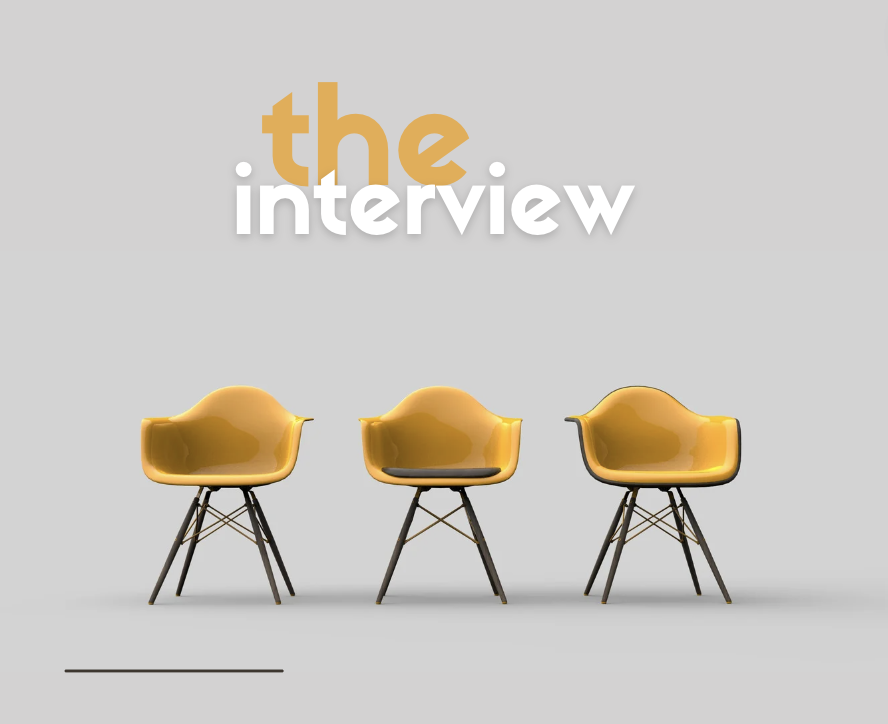Tell Me About Yourself..
This question on an interview is often misunderstood. Here are the tips and steps I follow and have learned over the past few years..

Interviewing for a job can be a nerve-wracking experience. It's a critical moment where you have the opportunity to make a strong impression and convince the interviewer that you're the right fit for the role. To succeed, it's essential to approach the interview strategically and authentically. In this discussion, we'll delve deeper into the guidelines and tips provided for acing your interview and connect them to the broader context of effective interview preparation.
Here's my course with full interview process on HOW TO actually get a TPM job! You can grab here: https://nik-tpm-school.teachable.com/p/course
1. Connect with WHY
One of the key pieces of advice given is to connect with the "WHY" behind your decisions and career choices. Instead of merely listing your qualifications, seize this opportunity to tell a compelling story about yourself. But why is this important? It's because stories have a powerful impact on human memory and engagement. When you weave a narrative around your career journey, you create a memorable experience for the interviewer. They are more likely to remember your story and connect with you on a personal level.
Consider the example of transitioning into a managerial role or pursuing an MBA. These are significant career decisions, and there's always a "WHY" behind them. Perhaps you can recount a pivotal moment in your previous job when you realized the importance of effective leadership, which motivated you to pursue a managerial role. Or maybe you can share how a particular life experience ignited your passion for business and led you to pursue an MBA. These personal stories not only make your interview memorable but also highlight your authenticity and commitment.
2. Brief Overview Your Work History
The next piece of advice emphasizes providing a concise summary of your work history, focusing on key achievements rather than responsibilities. This is crucial because it allows you to showcase your impact and contributions to previous employers. When you highlight achievements, you demonstrate your ability to deliver results and create value.
Take a moment to reflect on your work history. What were the significant milestones? What projects or initiatives did you lead or contribute to that had a substantial impact? These are the achievements you should spotlight in your interview. Use specific metrics and outcomes to quantify your successes, as this adds credibility to your claims. Remember, interviewers are interested in what you can bring to their organization, and your past achievements are strong indicators of your future potential.
3. Formulate Your Answer
Structuring your response is another critical aspect of interview preparation. The guideline suggests sharing past experiences, explaining reasons behind career transitions, discussing your current role or studies in detail, and connecting these experiences to your future aspirations. This structure creates a logical flow in your response and ensures that you cover all essential aspects of your career journey.
Start by narrating your career journey chronologically, highlighting key milestones, and the pivotal moments that influenced your decisions. For instance, if you're currently pursuing an MBA, explain why this is a significant step in your career. What specific skills or knowledge are you gaining through this program, and how do you plan to apply them in your future roles? Being thorough in explaining your current situation helps interviewers understand your present context and your growth trajectory.
4. Timing Less than 2 Minutes
The advice to keep your response within two minutes is vital. Interviews are often time-constrained, and interviewers appreciate candidates who can convey their message succinctly. Practicing your response to ensure it fits within this time frame is essential. However, the goal isn't just to be concise but also to be effective in delivering your message. Use this time wisely to communicate your story and key qualifications.
5. Personalize Your Response
Another valuable tip is to tailor your response to the specific company and job description. Employers want to see that you've done your homework and understand their needs. Dive deep into the job description, identify the skills and qualities they're looking for, and align your response accordingly.
For instance, if the job requires strong project management skills, emphasize your experience in leading successful projects and highlight how your past roles have prepared you for this position. By customizing your response, you demonstrate your genuine interest in the role and how you can contribute to the company's success.
6. Do Not Memorize
Memorization is a common pitfall in interview preparation. While it's essential to practice your responses, authenticity should remain a priority. Interviews are essentially conversations, and interviewers value genuine interactions. Rather than reciting a memorized script, focus on understanding the key points you want to convey and adapt your responses to the flow of the conversation.
7. Establish Eye Contact and Smile
Non-verbal communication is as crucial as what you say during an interview. The guideline advises making a great first impression by establishing eye contact and smiling. These actions convey confidence and approachability. When you maintain eye contact, you show that you're engaged and attentive. Smiling adds warmth and positivity to your demeanor, making the interview experience more pleasant for both you and the interviewer.
8. Leave 'Signals'
Including signals in your speech is a subtle yet effective technique. These signals are cues or hints that invite follow-up questions from the interviewer. For example, when discussing a project, you can mention that you encountered a challenging situation and overcame it using a particular strategy. This naturally prompts the interviewer to inquire further about your problem-solving skills and resourcefulness. Leaving signals strategically allows you to showcase your skills and experiences in more depth.
9. Be Yourself and Share Your Passion
Authenticity is key in interviews. Interviewers appreciate candidates who are genuine and passionate about the role and the company. If you have a personal connection or a genuine enthusiasm for the company's products or mission, don't hesitate to share it. Your enthusiasm can be contagious and leave a positive impression.
Moreover, staying informed about the latest company news and developments can demonstrate your genuine interest. Mentioning recent achievements or initiatives by the company shows that you've done your research and are genuinely excited about the opportunity.
10. Make Your Story Unique
The final piece of advice is to make your story unique. Remember that you're not just another candidate; you're an individual with a distinctive background and experiences. Embrace what sets you apart and use it to your advantage. Your uniqueness can be a compelling factor that distinguishes you from other applicants.
In conclusion, acing an interview requires a combination of preparation and authenticity. The provided guidelines offer valuable insights into crafting an impactful interview response. By connecting with the "WHY" behind your career choices, providing a concise overview of your work history, formulating your answers strategically, and personalizing your responses, you can significantly enhance your chances of success. Remember to be yourself, share your passion, and make your story uniquely yours. With these principles in mind, you can approach your next interview with confidence and make a lasting impression.
---
❗ Remember, if you want to stand out then make your story unique! 🌟 So, Just Tell Your Story!
Check my linkedin to check my response is in the comments!
#tpm#programmanagement#projectmanagement#technicalprogrammanager#CareerJourney#InterviewTips#TellMeAboutYourself







